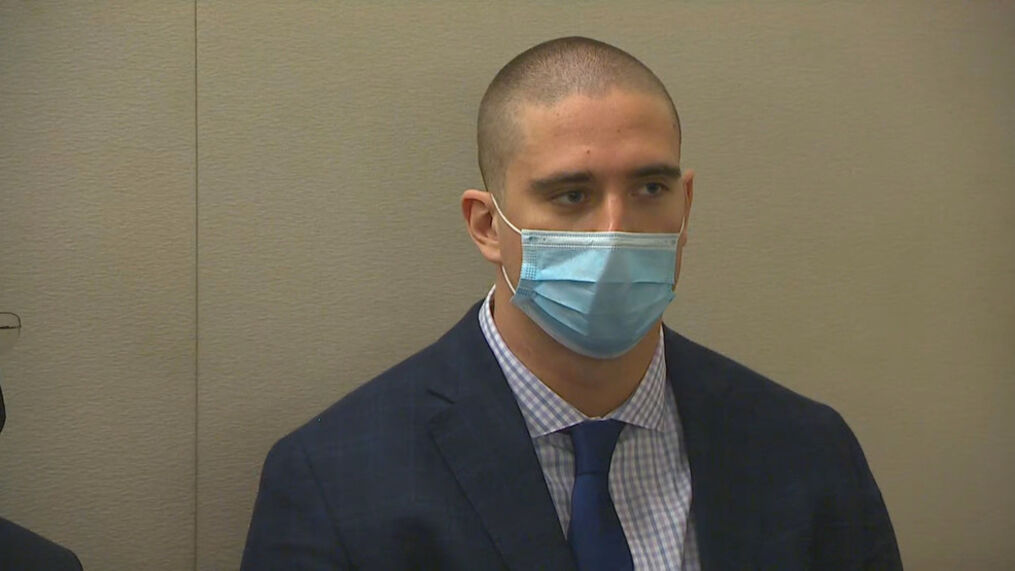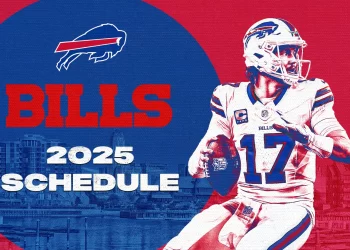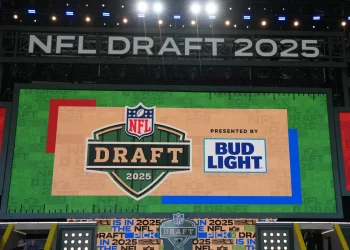By: Zach Draves
Malcolm X famously said that the most disrespected person in America is the black woman.
That has been true since 1619 and the actions of Seattle Seahawks offensive lineman Chad Wheeler only reinforce that.
Chad Wheeler, who is white, was arrested over the weekend for physically abusing and torturing his girlfriend, who is black after she refused to “bow to him”.
He was literally trying to kill her and was even surprised that she survived.
As more details about the case begin to emerge, one thing that remains clear is that this cycle of violence remains unbroken.
NFL’s Lack of Action
The NFL has had a long shameful history of burying its head in the sand when it comes to domestic violence.
Ever since Ray Rice in 2014 and multiple calls for the league to get its act together from domestic violence advocacy groups to the United States Congress, Roger Goodell and company consistently turn a blind eye.
There is a revolving door of players with histories of abuse going in and out with no effective measures of accountability in place.
As if to say that domestic violence is only worthy of a simple tongue-lashing and a warning slip because all that matters is winning Sunday afternoon.
Meanwhile, Colin Kaepernick and other players who use their platform to call for social justice are driven out of the league in no time.
They can cut all the PSA’s they want for Super Bowl Sunday but their words ring hollow when this remains a constant problem.
Criminalization of Black Male Athletes
Furthermore, if the roles were reversed and Chad Wheeler was black and his girlfriend that he tried to murder was white, the media coverage would have been enormous and he would have been made the poster child for what a domestic abuser is.
The truth of the matter is that there is no such thing as a prototypical abuser.
Abusers come from all different backgrounds and societal statuses who can be very nice and charming in public, but behind closed doors, it’s a whole other story.
Also, let’s not forget that with Ray Race, the media had a firestorm and the rightful calls for him to take responsibility for his actions were insurmountable.
The same standard is not being applied here and that largely has to do with how society criminalizes black masculinity within the context of white supremacy.
In other words, when a black man is involved in a criminal act, he is generally seen as the poster child for that act and the solution is to lock him up and throw away the key.
When a white man does the same, there is perceived shock, devastation, needing to make sense of it (e.g. mental illness), and hope for redemption.
In the high-profile criminal cases of black male athletes, the media coverage is sensationalized to the extent to which this narrative saying that black men are inherently violent is planted into our consciousness, conditioning us to associate certain crimes with black men.
Domestic violence (Ray Rice), cruelty to animals (Michael Vick), sexual violence (Mike Tyson), murder (O.J. Simpson).
Having discussions about what domestic violence is (power and control over another person) and dispelling dangerous myths need to be had in order to address the issue appropriately.
Misogynoir
In addition, we cannot overlook the deeply entrenched system of misogynoir.
Coined by scholar-activist Dr. Maya Bailey in 2010, misogynoir is defined as the specific hatred, dislike, distrust, and prejudice directed toward black women and girls.
This is where racism and sexism intersect.
It plays itself out in various ways ranging from historical and present-day erasure of the accomplishments of black women and girls in society to disproportionate inequities in the fields of criminal justice, health care, education, and domestic violence rates.
The following statistics from the Women of Color Network speaks volumes:
- An estimated 29.1% of African American
females are victimized by an intimate partner
violence in their lifetime (rape, physical
assault or stalking).
- African American females experience
intimate partner violence at a rate 35%
higher than that of white females, and about
2.5 times the rate of women of other races.
- However, they are less likely than white
women to use social services, battered
women’s programs, or go to the hospital
because of domestic violence.
- According to the National Violence Against
Women Survey (NVAWS), African
American women experience higher rates
of intimate partner homicide when
compared to their White counterparts.
As a result of historical and present-day systemic racism, black women and girls may be less likely to come forward and report their abuser.
Cultural depictions of black women and girls in mass media can create a climate in which black women and girls are seen as less believable than white women and girls.
This current case doesn’t exist in isolation and speaks to a much larger systemic problem.
Where to go from here
Going from here, there not only needs to be more attention brought to this case but the NFL and society at large needs to get its act together.
The #MeToo movement is here to stay.
A culture of silence and leniency within the NFL needs to continue to be called out.
Accountability and follow-up mechanisms need to be implemented and enforced, not just the regular practice of a certain number of suspensions during the season and then a swift return to the gridiron.
Those approaches should include a portion of a player’s salary to be donated to domestic violence shelters and organizations and to become actively involved in prevention education to the community, especially reaching men and boys to discuss how a toxic culture of masculinity reinforces violence towards women and girls.
The time to step up is long overdue because lives are at stake.
That is more important than Xs/Os.
If you or someone you know is experiencing domestic violence, call the National Domestic Violence Hotline at 1-800-799-7233 or go to thehotline.org. All calls are toll-free and confidential. The hotline is available 24/7 in more than 170 languages.


 NFL
NFL





